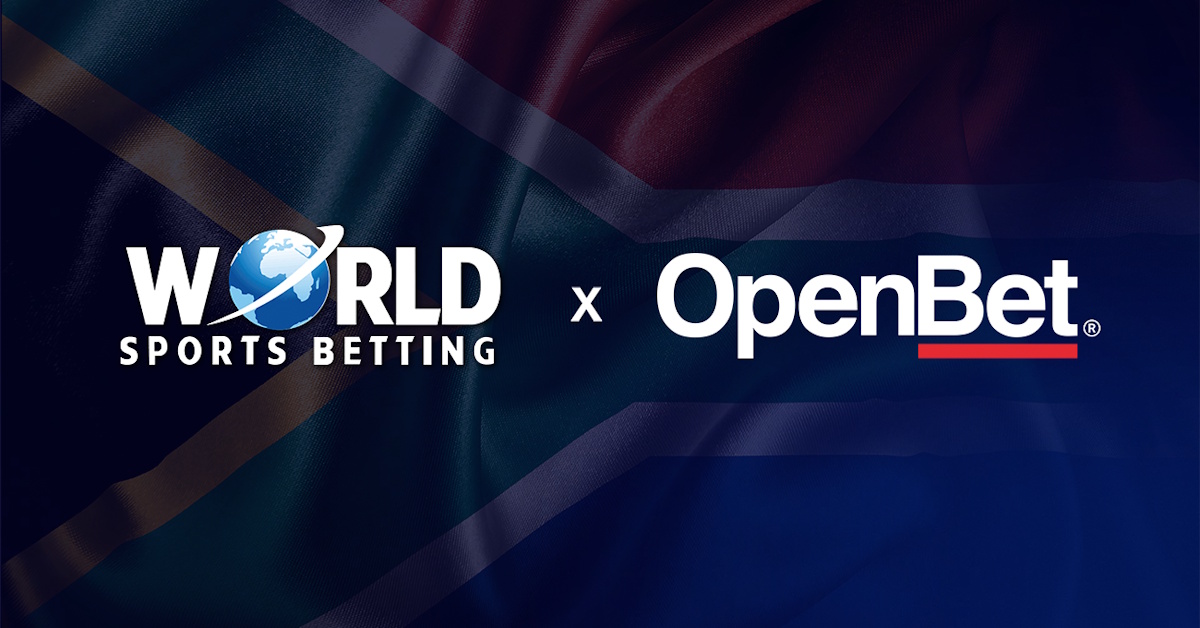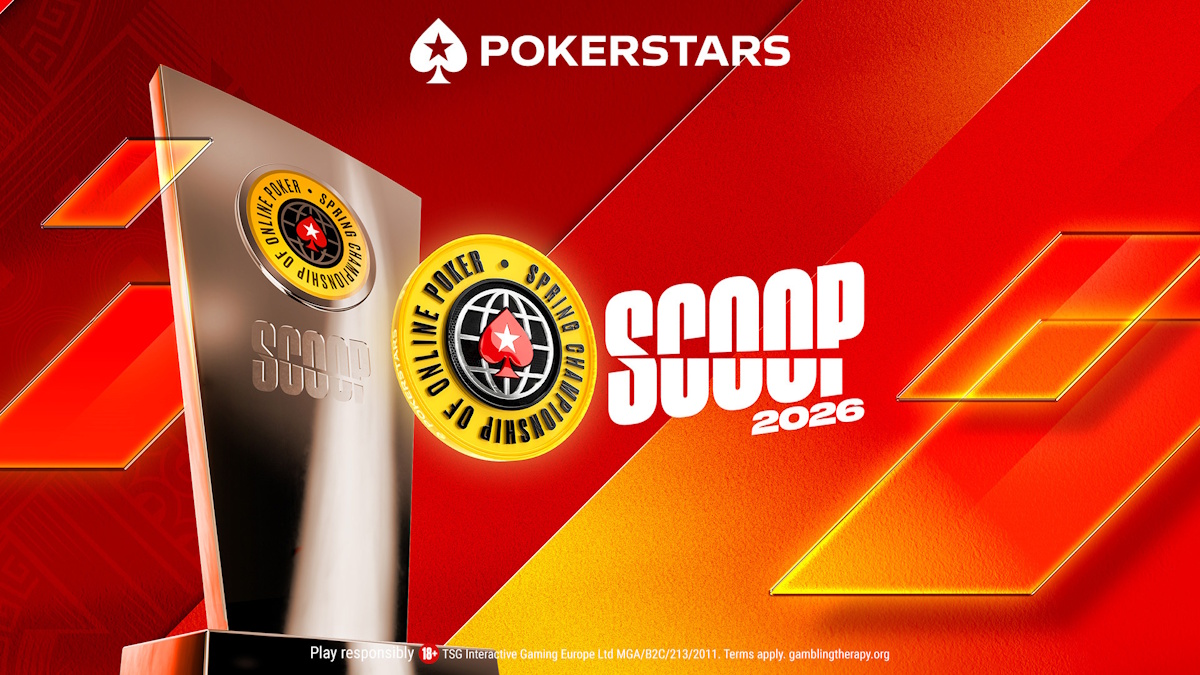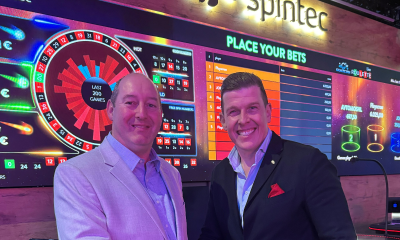Latest News
BOS op-ed: “Svenska Spel’s betting company must be sold by the state”

Dagens Nyheter – Sweden’s largest morning paper – today published an op-ed signed Gustaf Hoffstedt, Secretary General of The Swedish Trade Association for Online Gambling. Hoffstedt is urging the government to sell the betting and online casino part of the governmental gambling operator Svenska Spel.
We are pleased to bring you the English version of the editorial which you can read in full below:
Sell Svenska Spel
Since 2019, Sweden has had a licensing system for gambling companies. Anyone who wants to operate in the Swedish gambling market must have a state license. As of 2019, there are two types of gambling markets; partly a monopoly that mainly offers lotteries, for example, the popular Trisslotten. In this market, private profit–making gambling companies are not allowed to operate. Partly a commercial competitive gambling market that mainly offers online casinos and betting, for example betting on horses and football. In this market, private commercial gambling companies can apply for and be awarded a license to operate in the Swedish gambling market.
Through Svenska Spel, the state is active in both of these markets, but now the time has come to divest Svenska Spel Sport & Casino, i.e. the part of the company that is active in the commercial, competitive gambling market.
Around 70 gambling companies are fighting for market share in the part of the gambling market that is open to competition and offers online casinos as well as betting on horses, football, other sports, and even who will win the next parliamentary election or Schlagerfestivalen. One of these companies is state–owned: Svenska Spel. It is difficult to find arguments for continued government commercial involvement in that market.
Normally, the state usually engages in business activities when the market itself has failed, above all in terms of competition. There may be too few players in a market and the few that exist may have too dominant a position for competition to function. Then the state steps in as a commercial actor with the ambition of countering that market failure. However, no one who has followed developments in the Swedish gambling market can claim that there is too little competition between the 70 companies that operate in competitive gambling. Competition is fierce and would remain so even in the absence of the state as a commercial casino operator and bookmaker in betting.
Another argument for conducting state–owned commercial gambling activities could be a desire to act as an example for all other companies on the market, for example in not producing as much gambling advertising as the competitors. Anyone who has followed Svenska Spel’s marketing since the reregulation knows, however, that the company is one of Sweden’s largest advertisers in all categories, i.e. including gambling but also other large advertising buyers such as grocers and car manufacturers. Svenska Spel’s extensive advertising purchases rather force the private gambling companies to make larger advertising purchases on their part than would otherwise have been the case.
“A state–owned gambling company that operates in direct competition with others is, in principle, like any other gambling company,” says the government investigation from 2017, which was the basis for the Swedish reregulation of the gambling market. That’s exactly how it is; Svenska Spel Sport & Casino has exactly the same license as other gambling companies. They follow exactly the same responsible gambling regulations, and they do it no better or worse than their competitors. They pay exactly the same gambling tax as all other gambling companies. Therefore, the logical consequence already became apparent to the Gambling License Investigation six years ago: “The conclusion is, according to the investigation, that the best alternative would be to divest the competition part.” [A reregulated gaming market, SOU 2017:30, p. 34]
So the only remaining question is why hasn’t the company been sold yet?
Perhaps an argument for keeping the company under state auspices could be its return to the state. But the idea is of course not for the company to be liquidated, but on the contrary to be sold to the highest bidder and then continue to be run, albeit privately. With the same requirement to pay gambling tax.
Not entirely surprisingly, there is a classic division here between political parties on the right and the left. Parties on the left view positively that the state owns companies and runs businesses, while parties on the right do not. This is also the case in this matter, and before the reregulation, the center-right parties had to waive stricter demands for the divestment of Svenska Spel Sport & Casino in order for the Social Democrat–led government to agree to introduce the gambling license system we have today.
Now that time is over and we have a new government, which together with the Sweden Democrats forms a majority in the Riksdag. The moderates have long advocated a divestment of Svenska Spel Sport & Casino, as have the Sweden Democrats. The voters who have given the center-right parties the power to rule Sweden have very reasonable expectations that the government will now move from words to action.
This is really nothing new for a center-right government. The last time Sweden had such a government, it concluded that the fact that the Swedish state had then become one of the world’s largest producers of alcohol was not in line with the government’s idea of what a state should do. Thus Vin & Sprit AB was sold in 2008, with the Absolut brand, for 55 billion kronor to France’s Pernod Ricard, which still runs the business for the benefit of Scanian grain farmers, among others.
It is now high time that our own contemporary anomaly, the state’s role as a casino operator and bookmaker, found an end. And unlike the long–awaited introduction of gambling licenses, which took place at the initiative of the Social Democrats, it would be desirable for this to happen during a center-right wing government in power. What else should it have the power for, if not to implement what it said in opposition it wanted to do?
Gustaf Hoffstedt
Secretary General, The Swedish Trade Association for Online Gambling
[Gustaf Hoffstedt is among the speakers of the Prague Gaming & TECH Summit which will be held between 29-30 March 2023. More details about the summit can be found here.]
Powered by WPeMatico
accumulators
Record-breaking volumes at the World Sports Betting Cape Town Met, powered by OpenBet technology

OpenBet, a global leader in betting and gaming technology, powered record-breaking volumes for World Sports Betting (WSB) during the 2026 World Sports Betting Cape Town Met, processing more than three times WSB’s typical daily activity with zero downtime.
The Cape Town Met is one of South Africa’s premier horseracing events, drawing intense traffic that tests platform performance. Less than a year after migrating to OpenBet’s unified technology stack, WSB demonstrated the resilience and scalability of its platform under extreme demand.
OpenBet’s Player Account Management (PAM) technology and sportsbook solution — phased in with PAM going live in February 2025 and the sportsbook in October 2025 — now underpin WSB’s enterprise-grade wagering infrastructure across both digital and retail channels. The integrated system delivers streamlined KYC, a unified wallet, accurate reporting and a robust compliance framework designed for South Africa’s regulatory environment.
Enhanced features available to WSB customers include 50-leg accumulators, partially redeemable free bets, advanced Telebet telephone betting and integrated pools betting for sports and racing through OpenBet’s advanced trading system.
“With the World Sports Betting Cape Town Met, we processed more than three times the usual volume with zero downtime, showcasing the strength and scalability of our technology,” said Runa Walia Desai, Chief Customer Experience Officer at OpenBet. “This milestone also extends our footprint into Africa, reinforcing our position across six continents.”
Warren Tannous, CEO of World Sports Betting, added that OpenBet’s modular solution gives the operator the confidence to expand its sportsbook offering and support increased user engagement while maintaining performance and compliance.
The post Record-breaking volumes at the World Sports Betting Cape Town Met, powered by OpenBet technology appeared first on Eastern European Gaming | Global iGaming & Tech Intelligence Hub.
10000x multiplier
Choice Gaming Launches Evra Crash in Exclusive Collaboration with Patrice Evra

Choice Gaming has officially launched Evra Crash, a new multiplayer crash game developed in exclusive collaboration with football legend Patrice Evra.
The title blends high-energy crash mechanics with football culture, delivering a synchronized, shared-table experience designed to boost player engagement and social interaction.
A Football Icon Powers the Gameplay
At the center of Evra Crash is Patrice Evra, one of football’s most recognizable personalities. His presence adds authenticity and competitive intensity to the gameplay, reinforcing the game’s energetic, community-driven concept. The partnership between Choice Gaming and Evra aims to merge competitive spirit with immersive entertainment in the fast-growing crash gaming segment.
Multiplayer Crash Experience
Unlike traditional single-session crash games, Evra Crash is built around real-time shared rounds:
- All players join the same round simultaneously
- Fully networked multiplayer participation
- Visible, synchronized gameplay across users
This structure creates a social crash environment where anticipation builds collectively, increasing engagement and enhancing the thrill of each round.
Game Features & Performance Metrics
Evra Crash offers a balanced gameplay structure designed for broad player appeal:
- RTP: 95%
- Maximum Multiplier: 10,000x
- Volatility: Low
The low-volatility model provides consistent entertainment while maintaining the potential for high multipliers, positioning Evra Crash as an accessible yet exciting crash title in the iGaming market.
Cross-Platform Optimization
Built for seamless performance across environments, Evra Crash is:
- Fully mobile-optimized
- Compatible with land-based gaming solutions
- Designed for consistent cross-platform gameplay
Whether accessed online or in physical gaming venues, players experience uninterrupted performance and smooth gameplay integration.
The post Choice Gaming Launches Evra Crash in Exclusive Collaboration with Patrice Evra appeared first on Eastern European Gaming | Global iGaming & Tech Intelligence Hub.
Latest News
EARN YOUR PLACE AMONG THE BEST AS POKERSTARS REVEALS SCHEDULE FOR PRESTIGIOUS SPRING CHAMPIONSHIP OF ONLINE POKER

More than $45 million guaranteed across 400 tournament opportunities for all players to earn their greatness
The full schedule for poker’s first major online series of the year, PokerStars prestigious Spring Championship of Online Poker (SCOOP), has been unveiled featuring 136 events and more than $45 million guaranteed.
From March 1 to 25, players have the chance to earn their greatness once more and battle for an acclaimed SCOOP title across three weeks of elite online poker action. The 136-event schedule (with a total of 400 tournaments) offers low, medium, and high buy-in levels from $5.50 to $15,000, and a wide range of formats including No-Limit Hold’em, PLO, 8-Game, Mystery Bounties, Turbo, and Deep Stack events, making SCOOP accessible for everyone.
KEY SCHEDULE HIGHLIGHTS
The flagship Main Events will be a schedule highlight and will award a total of $5.5 million across the NLHE Main Events on March 22, and $550,000 across the PLO Main Events on March 23.
- $109 SCOOP NLHE Main Event Low – $1.5 million guaranteed
- $1,050 SCOOP NLHE Main Event Med – $2 million guaranteed
- $5,200 SCOOP NLHE Main Event High – $2 million guaranteed
- 109 SCOOP PLO Main Event Low – $100,000 guaranteed
- $1,050 SCOOP PLO Main Event Med – $200,000 guaranteed
- $5,200 SCOOP PLO Main Event High – $250,000 guaranteed
Other highlights of the 18th edition of SCOOP include:
- March 1 – $215 Sunday Million PKO – $1 million guaranteed
- March 8 – $22 Mystery Sunday Special, $300,000 guaranteed – All-in Shoot Out for United Kingdom & Ireland players to award an Emerald Pass to the Irish Open on March 10 at 7am GMT
- March 8 – $109 Sunday Million PKO – $1 million guaranteed
- March 15 – $55 Mini Sunday Million PKO – $500,000 guaranteed – All-in Shoot Out for United Kingdom & Ireland players to award an Emerald Pass to the Irish Open on March 17 at 7am GMT
- March 15 – $530 Sunday Million – $1 million guaranteed
As well as the huge prizes and trophies on offer, players can also compete in the SCOOP Leaderboards where an additional $100,000 in cash prizes will be awarded across the Low, Medium and High Player of the Series Leaderboards.
As ever, there are a number of qualification routes giving players the chance to qualify into SCOOP events for a fraction of the buy-in. Routes include satellites from just $0.55, the SCOOP Lucky Dip where $500,000 in SCOOP tickets are up for grabs and the $55 Power Path Express SCOOP Edition, on March 1st,where more than $200,000 in SCOOP Power Passes and Main Event tickets will be awarded to boost players’ grind to greatness. Finally, all players are still in time to crack open a SCOOP Prize Vault and earn a SCOOP ticket worth up to $1,050 upon opt-in.
“SCOOP is where greatness isn’t given, it’s earned. Every title represents weeks of preparation, relentless competition and beating the toughest fields in online poker. That’s what makes a SCOOP win so special,” said Steve Clarricoats, Associate Director of Poker Operations at PokerStars. “With a huge schedule and accessible buy-ins and formats, SCOOP remains the title every online player wants on their record.”
For 17 years, SCOOP has been appointment poker of the highest order and winning a SCOOP title has been a bucket list dream for poker players all over the world. More than $1.4 billion in prize pools have been awarded to players since SCOOP started in 2009, with some of the world’s best players earning coveted SCOOP trophies.
Sweden’s Simon “C. Darwin” Mattsson is the greatest player in SCOOP history having earned 14 titles, followed by fellow Swede Niklas “Lena900” Astedt and the UK’s Benny “RunGodlike” Glaser who both have 11 titles, with Benny being the most decorated player in COOP history also having a record-leading 16 WCOOP titles.
For more information about SCOOP head to the PokerStars website or PokerStars Blog.
The post EARN YOUR PLACE AMONG THE BEST AS POKERSTARS REVEALS SCHEDULE FOR PRESTIGIOUS SPRING CHAMPIONSHIP OF ONLINE POKER appeared first on Americas iGaming & Sports Betting News.
-

 Amusnet6 days ago
Amusnet6 days agoWeek 7/2026 slot games releases
-

 Aphrodite’s Kiss6 days ago
Aphrodite’s Kiss6 days agoLove on the Reels: Slotland Introduces “Aphrodite’s Kiss”
-

 Brino Games6 days ago
Brino Games6 days agoQTech Games integrates more creative content from Brino Games
-

 Baltics7 days ago
Baltics7 days agoEstonia to Reinstate 5.5% Online Gambling Tax From March 1
-

 Denmark7 days ago
Denmark7 days agoRoyalCasino Partners with ScatterKings for Company’s Danish Launch
-

 Booming Games7 days ago
Booming Games7 days agoTreasure Hunt Revival — Booming Games Launches Gold Gold Gold Hold and Win
-

 ELA Games7 days ago
ELA Games7 days agoELA Games Unveils Tea Party of Fortune — A Magical Multiplier Experience
-

 Bet Rite7 days ago
Bet Rite7 days agoSpintec Expands into Canada with Bet Rite



















